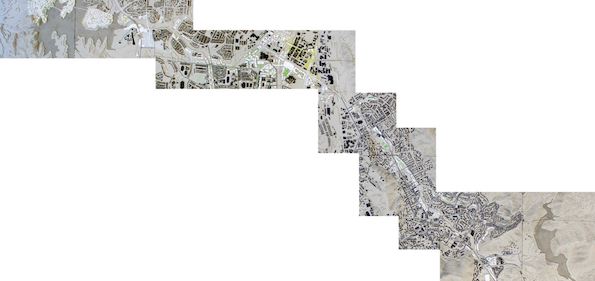Assessment of underutilized public land for infill housing opportunities in Windhoek
This project is an ILMI Seed Grant 2020 Awardee.

Namibia’s urban land and housing crisis is most clearly characterized by the ca. 70 percent of urban citizens living in informal structures and/or settlements across the country and the fact that even public sector teachers, considered as middle-income group, to a large extent cannot afford adequate housing options, let alone income groups with much lower and irregular incomes such as domestic workers, or indeed informal workers. The 2018 National Land Conference established urban land as one of the main pillars of land reform, and Resolution 29 calls for “unused land available in the LA [local authority] to be considered for expropriation” in order to make it available for adequate housing. In Windhoek, large portions of such seemingly underutilized land is publicly-owned either by central government or the Municipality of Windhoek. Such land is often reserved for future development, as “public open space” or “undetermined” and includes the vast network of dry riverbeds throughout the city. Such open land is often inaccessible for public use, and thus could be considered underutilized and as such holds great potential for realizing adequate housing within the built-up area of the city (see motivation letter for a general outline of the infill housing concept as well as presentation annexed hereto). The lead-applicant has engaged the City of Windhoek (CoW) since 2017 regarding a proposal to investigate the possibility of urban infill adequate housing at various platforms. However, a systematic assessment of underutilized public land in Windhoek is outstanding. This proposal seeks to fill that gap as a first step in developing a concrete policy proposal for the realization of urban-infill housing on currently under-utilized publicly-owned land in Windhoek. The project aims to (1) identify and assess publicly-owned land in terms of efficiency of land-use; (2) assess such land in terms of potential for medium-density infill housing and accessible public space development; (3) assess statutory regulatory frameworks and processes to unlock identified land for such developments in the public interest. In addition to this empirical work, the trans-disciplinary research team will develop a locally-situated argument for the well-known benefits of urban densification from the perspective of productivity improvements, facilitation of mobility, provision of resilient infrastructure and services, and the democratization of open spaces. The findings will be shared with policymakers at the Local Authority and Central Government levels by means of a fact sheet and policy brief, with the larger aim of contributing to the development of an Adequate Housing Programme in collaboration with the CoW.
Principal investigator: Phillip Lühl, architecture and urbanism, NUST pluhl@nust.na
Co-investigators Jennilee Kohima, urban and regional planning, NUST; Menare Royal Mabakeng, land administration, NUST; Anni Beukes, social anthropology, Mansueto Institute, University of Chicago; Cooper Nederhood, computer science, Mansueto Institute, University of Chicago; Dr. José Lobo, urban economics, School of Sustainability, Arizona State University.
Project duration 1 August 2020 - 31 January 2021
General inquiries: Ms Emorgen Jansen ejansen@nust.na
